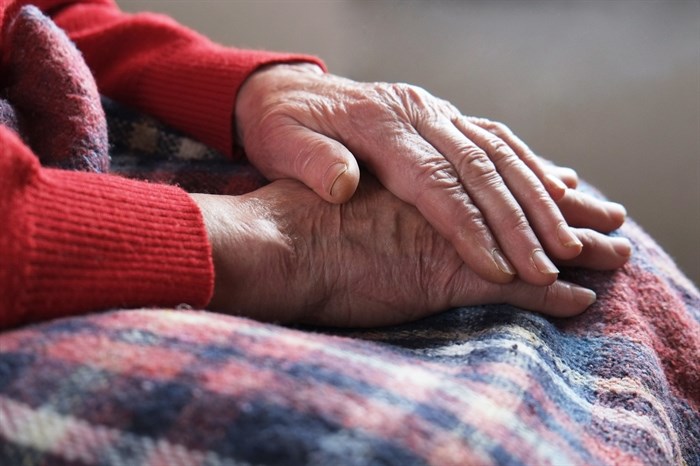
Image Credit: ADOBE STOCK
January 14, 2020 - 8:30 AM
The federal government is giving Canadians two weeks to give their thoughts on access to medical assistance in dying.
A questionnaire asks people to consider issues like, whether the standard 10-day reflection period patients are supposed to wait, should be changed.
It also asks a person to imagine different scenarios. In one case they ask about a person who has made a request for medical assistance in dying, is found to be eligible, and is awaiting the procedure.
"A few days before the procedure, the person loses the capacity to make health care decisions, and cannot provide final consent immediately before the procedure," reads the survey. "In your opinion, should a physician or nurse practitioner be allowed to provide MAID to a person in these circumstances?"
This questionnaire comes on the heels of a Sept. 11, 2019, the Superior Court of Québec decision that found that limitations to medical assistance with death were too restrictive to people nearing the end of life.
The case was brought by two persons living with disabilities, one who has lived with cerebral palsy since birth, and another who has lived with paralysis and severe scoliosis as a result of poliomyelitis.
Practitioners who assessed them were of the view that they met all eligibility criteria for Medical Assistance In Dying, except nearing the end of life. The Court declared the “reasonable foreseeability of natural death” criterion in the federal Criminal Code, as well as the “end-of-life” criterion in Quebec’s provincial law on medical assistance in dying, to be unconstitutional.
The Court’s ruling will come into effect on March 11, 2020, unless an extension is granted by the Court.
While this ruling only applies in the province of Quebec, the Government of Canada has accepted the ruling and has committed to changing the MAID law for the whole country.
Even without the court decision, the federal government said it was committed to reviewing the law five years after it was passed.
“This review will provide the opportunity to hear from Canadians about how Medical Assistance In Dying is working, and to see if any changes should be made,” reads the statement. It is expected that this review will start in 2020.
Since assisted death was legalized, more than 6,700 Canadians chose to die with the help of a physician or nurse practitioner.
Closer to home, between Jan. 1, 2016 and June 30 of this year, there were 427 medically assisted deaths within Interior Health, representing 1.5 per cent of all deaths in the region, according to statistics gathered by the B.C. Ministry of Health.
Over the same timeframe provincially, there were 2,410 medically assisted deaths, which amounts to 1.8 per cent of total provincial deaths.
While the numbers don’t tell the story of the men and women who chose how and when to end their lives, the numbers do offer some insight into a growing area of medicine.
“For the most part our average age is still in around 75 years old, while the oldest person was in their 90s and the youngest was 35 years old,” Dr. Douglas Smith, Interior Health executive medical director for long-term care, palliative and end of life care and medical assistance in dying said in a recent interview.
“They were all persons who were suffering from difficult illnesses and the most common diagnosis is cancer.”
This mirrors national trends, and Health Canada cited cancer in about 65 per cent of all medically assisted deaths.
Another local statistic mirroring the national figures is that only 50 per cent who apply for medical assistance in dying actually go through with it.
Smith said the biggest reason is that patients get approved and then defer their treatment, and a smaller number of people die before they’re able to implement it.
Another commonality is that the caregivers of these men and women are pioneers.
While there has been uptake and acceptance, Smith said medically assisted dying is an ever-changing area of practice and, like anything, there have been bumps in its adoption.
“It takes time and some tension still exists,” Smith said.
To contact a reporter for this story, email Kathy Michaels or call 250-718-0428 or email the editor. You can also submit photos, videos or news tips to the newsroom and be entered to win a monthly prize draw.
We welcome your comments and opinions on our stories but play nice. We won't censor or delete comments unless they contain off-topic statements or links, unnecessary vulgarity, false facts, spam or obviously fake profiles. If you have any concerns about what you see in comments, email the editor in the link above.
News from © iNFOnews, 2020